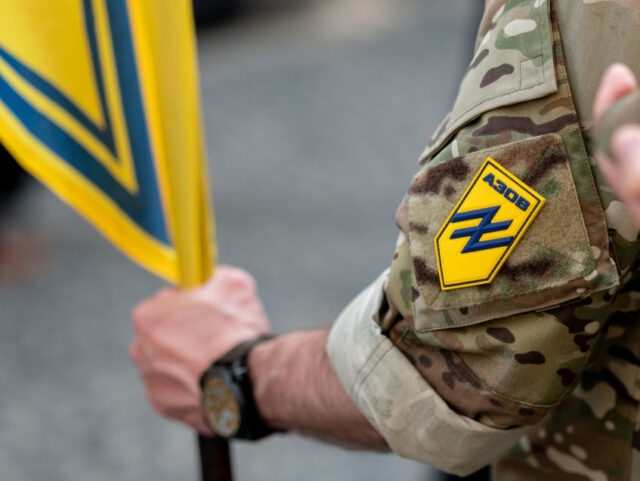The Azov Brigade, as known for its neo-nazi links as its enthusiasm for combat is returning to the front lines after a period of recovery and training.
The Azov Brigade are returning to the front line, a spokesman for the Ukrainian National Guard says, remarking on the deployment: “The legendary special forces brigade Azov was reinstated and started to carry out combat missions in the Serebriansky Forestry area. Azov soldiers reliably hold the lines and inflict devastating losses on the enemy in terms of manpower and equipment.”
Azov forces were heavily involved in defending the siege of Mariupol last year, in which several of their key commanders were captured by Russian forces, and a prisoner swap earlier this year saw Azov officers and troops returned to Ukraine through Turkey. Azov has been in training since, according to Ukrainian state media, with the Ministry of Internal Affairs saying earlier this month: “Soldiers of the Azov Brigade conducted tactical exercises. The main purpose of the tactical exercises is to work out practical issues of planning and organizing combat in offence and defence”.
In April, they said Azov was training in close-quarters battle (CQB) tactics and in using American-donated MaxxPro armoured cars. The ministry reported: “Particular attention was paid to the ‘cleaning’ of the premises, which is considered one of the most difficult tasks in CQB and combines elements of police tactics with the military. Acquiring such skills is the key to the fighter’s professionalism. And all-round training forms his resilience and confidence on the battlefield.”
The Azov group was founded in 2014 as a paramilitary group inspired, it is said, by hardline neo-nazi thinking and football hooliganism. While defenders of Azov say they were deradicalised after their integration into the formal structure of the Ukrainian armed forces, even ardent supporters of Ukraine in the Western media have expressed reservations about the group.
Russia, on the other hand, has used Azov’s founding and use of fascist iconography to propagandise against Ukraine and justify what they call their ‘special military operation’. Since the beginning of the conflict, Moscow has insisted the purpose of the invasion is the ‘denazification’ of Ukraine and Azov identified as a key target.
For outlets such as the New York Times, dealing with Azov forces for Westerners presents an intractable problem, as calling attention to Ukrainian soldiers fighting and dying under neo-Nazi symbols “risks playing into Russian propaganda”, whereas turning a blind eye normalises fascism, potentially storing up greater problems for the future.

COMMENTS
Please let us know if you're having issues with commenting.